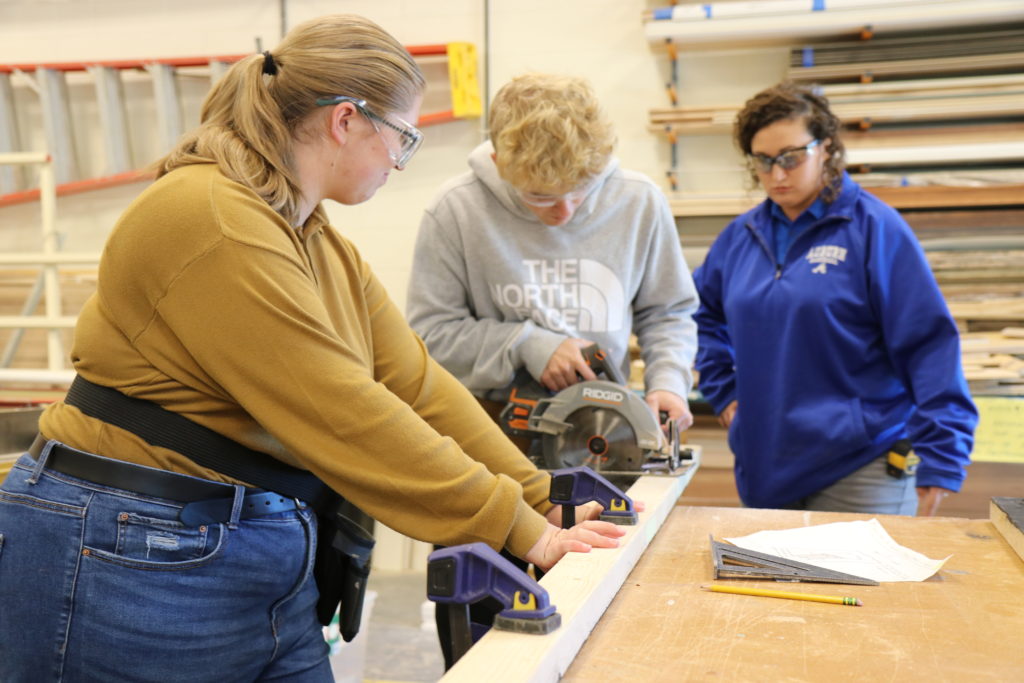Career Tech Instructor Earns $50,000 For Classroom

Auburn High School (AHS) students build real-world skills through career tech classes. Helping hone those skills just got easier for construction teacher Jess Bowlin, thanks to a $50,000 grant earned through the Harbor Freight Tools For Schools program.
“Construction and learning are two of my strongest passions,” Bowlin said. “My hope is students gain an interest in construction while also developing the desire to learn.”
The 2021 Harbor Freight Prize For Teaching Excellence drew more than 700 applications from 49 states. Eighteen teachers made the cut, including Bowlin and Brian Copes, a construction and manufacturing teacher at Chickasaw High School in Chickasaw.
The Alabama Farmers Federation is a fierce proponent of career tech education, annually helping secure state funds for the Career Tech Initiative — and teachers like Bowlin and Copes. County Farmers Federations and the Alabama Farmers Agriculture Foundation also provide direct support for career tech programs such as FFA.
Harbor Freight founded its contest to honor skilled trades teachers and programs in 2017. That year, Bowlin left the private sector to establish AHS’s construction program. Her down-to-earth, friendly attitude and passion for education fuels her teaching style and pushed her to apply for Harbor Freight’s grant in 2019, 2020 and 2021.
Third time’s the charm.
Recent projects that amped up her application included guiding students as they built a tiny house, which sold for $30,000 in 2020. Over multiple semesters of work, students experienced nearly all construction processes involved with building a new residence, hosted public showings and engaged with local industry and community organizations.
The Auburn University graduate grew up on a farm in Hazel Green and said she enjoys showing the next generation that it’s OK to break the mold in the construction field. Women make up just 10% of construction industry workers, according to the National Association of Women in Construction.
Bowlin simulates the workplace in her classroom, letting students take the lead, whether building a tiny house or constructing the set for an AHS theatre performance.
She plans to purchase a CNC machine with the grant. Students will learn CNC software programming to create products, such as door hangers, they’ll sell for profit and use to fund future projects.
“Even if students realize construction isn’t for them, they’re still learning things to empower them in their own households and in their own lives,” she said.
To learn more about the grant, visit HarborFreightToolsForSchools.org.
